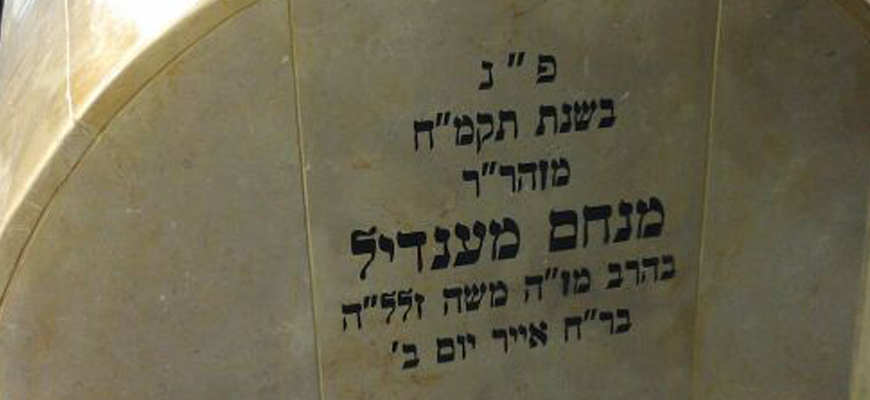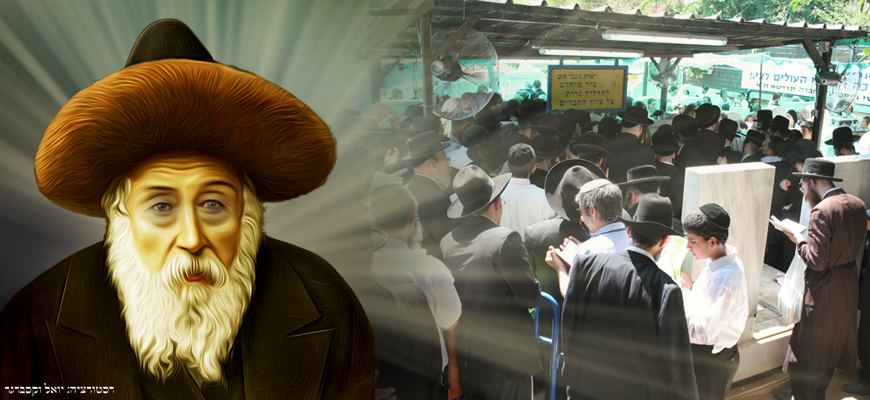The origin of the custom of saying Kaddish in the first year
It is customary to say Kaddish in the first year after the death of the father and mother, the origin of this custom is in the Midrash: the story of Rabbi Akiva, who saw a man who was naked and black as coal , and he was running like a horse racing with a large bundle of wood on his shoulder. When asked by Rabbi Akiva about his actions, the man answered him: “i’m a dead person, and every day I am attacked by angels who oblige me to chop wood, and then they burn me with them. Why? Because I violated all the commandments of the Torah.” Rabbi Akiva said to him: “Did you hear anything from your superiors, if you have a solution, to get rid of this calamity?” The man answered: “I heard that they say that if this poor man had a son, who stands in the crowd and says Kaddish , and blessed the blessed God, and the crowd answered after him Amen, they would have immediately released me from the punishment.” Rabbi Akiva asked him from what city he is, and he went there.
After a demand and investigation, Rabbi Akiva found the man’s son, while he was still a bachelor and not circumcised. Rabbi Akiva took him, and sat him before him to learn Torah, and he did not accept until Rabbi Akiva fast forty-day and prayed over him, and a Bat Kol came out and told Rabbi Akiva that his prayer had been accepted. So he went and taught him the Torah, reading the Shema, praying and blessing on the food. Then stood him in the crowd to say Kaddish, and the crowd responded after him. At that time they untied the dead man and freed him from the calamity.
In the Zohar the above incident is mentioned and there it is written that Rabbi Akiva taught him to say the Haftrah in the synagogue, and he did so, and he continued to teach him Torah until he was ordained with the title of rabbi, and then the dead man appeared in a dream to Rabbi Akiva, and he said to him : “Rabbi, may the Almighty have mercy on you as you have mercy on me, because when my son said Haftah, they removed from me the judgment of hell, and when he went to pray and said Kaddish, they tore up my sentence completely, and at the time that my son was crowned as a rabbi, I was crowned with the crown of the righteous and I was seated with them in Gan Eden.
How helpful is it for the soul of the deceased…
The Kaddish is not only useful to be saved from hell alone, but also useful to be raised in heaven from one level to another. Studying the Torah is also very beneficial for the soul of the deceased, and the son who studies the Torah saves his father from a state of hell and puts him in heaven. Learning Mishnayot is also a great correction for the soul of the deceased therefore it is customary on Ya’arzeit (year day, memorial day) to learn Mishnayot that begin with the name of the deceased.
The mitzvah of honoring father and mother
Even if the father was evil, what the son does for his father is beneficial. All the more so if his father commanded him to do prayer and charity for him after his death, which will be more and more useful, and he makes his dead father happy and honors his parents by doing so, and especially within the first thirty or seven days that the judgment is stretched over the soul of the deceased, if he increases in Torah and prayers and charity for the soul of his father and mother, there is power to be freed from the torments and judgments of hell, and as a father has mercy on his sons, so will the son have mercy on the souls of his father and mother and reward them with the kindness of truth.
Not just for the parents!
A person can also mitigate judgment and punishment from his friend in the next world, when he gives charity and studies Torah and prays for the soul of the dead.
Rabbenu Hakadosh also needs the Kaddish
The Gemara (כתובות לג) tells about Rabbenu Hakadosh, Rabbi Yehuda Hanasi (the author of the Mishnayot), that before his death he said: “For my sons I need”. If Rabbenu Hakadosh said that he needed the help of his sons after his death, surely every other person needs his sons. Because as long as a person lives in this world, the Creator gave him the opportunity to repent and correct his actions. But when he leaves this world and ascends to the world of truth, there he no longer has the option of correcting and adding to the commandments and good deeds. Only what he has accumulated in this world remains with him.
The children can help the souls of the parents
At this point only the good deeds of his sons and daughters can help him. The actions of the children affect the souls of the parents and add rights to them, and God forbid, bad actions have a negative effect on the condition of the parents.







